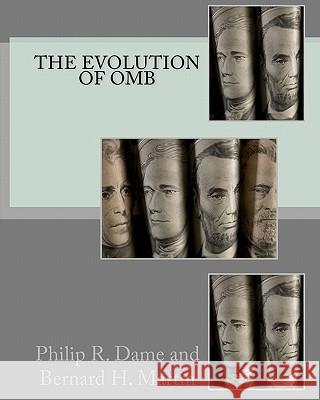The Evolution of OMB » książka
The Evolution of OMB
ISBN-13: 9781456380281 / Angielski / Miękka / 2011 / 104 str.
The Evolution of OMB A former senior official of the Office of Management and Budget (OMB) commented that: "One of the interesting things about OMB is that it is unexplainable to everyone who lives outside of Washington, DC] and misunderstood by nearly everyone who lives inside {Washington]." This book attempts to make OMB explainable and understood. It describes the growth and authorities of this powerful agency that prepares the President's annual $3 trillion plus Budget, develops strategies for the management of the entire Executive branch of the federal government, and will be in the center of future debates over the growing federal deficit. For one hundred and fifty years, from 1789 to 1939, American Presidents had little more than a personal secretary to assist in the work of the Presidency. For the Civil War and the First World War, and the depressions of the late 19th and early 20th Century, Presidents had almost no personal staff to assist them, relying on outside advisers and Cabinet officials. In 1939 Franklin Roosevelt created the modern Executive Office of the President (EOP). The Bureau of the Budget (BOB) served as the principal EOP staff agency through the Second World War. Shortly after the War the EOP began to grow. By the beginning of the 21st Century BOB had become OMB, new EOP staff agencies had become institutionalized, and the position of Chief of Staff and a number of Presidential assistants added. Presidents had an EOP staff of more than seventeen hundred people exclusively committed to service to the President, vastly expanding their reach and authority. The President's statutory responsibilities have grown commensurate with the growth of the EOP, and events - and the desires of Presidents. "The Evolution of OMB" reviews the history of OMB and the Presidency beginning with the establishment of BOB in the Treasury in 1921. Two former OMB senior career executives (Philip Dame and Bernard Martin) cover significant periods of change within the agency. Following the history, the authors offer perspectives on OMB's role in the EOP, including the OMB relationship with the President, the Congress, its management role and several other topics. The OMB history was prepared from their own lengthy experience, from research, and by interviewing and soliciting comments from other past OMB staff, both career and politically appointed officials. Vignettes provided by past staff members add insight to the OMB and EOP culture. A number of OMB staff provided original source material. The history will be of interest to Presidential scholars - some of who have already engaged with the authors on the material -- students of the Executive Office and OMB, amateur and professional historians, and ordinary citizens who want to know more about the inner workings of one of the most significant agencies in the federal government among others. The history has already been used as source material for policy officials for the Obama Administration transition team in 2008.
Zawartość książki może nie spełniać oczekiwań – reklamacje nie obejmują treści, która mogła nie być redakcyjnie ani merytorycznie opracowana.











